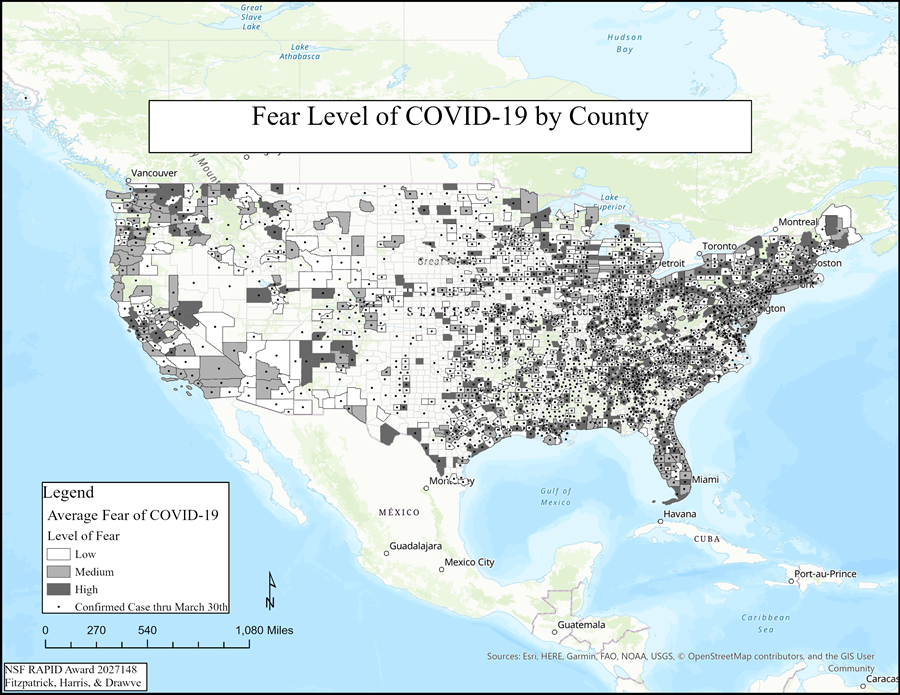Communities around the world have experienced rapid economic and social upheaval because of the global COVID-19 pandemic. A team of researchers at the University of Arkansas are working to better understand how these changes and the underlying fear that is being produced are impacting society's collective social and psychological well being.
Department of Sociology and Criminology professor Kevin M. Fitzpatrick, associate professor Casey Harris and assistant professor Grant Drawve were recently awarded a $185,000 Rapid Response Research grant from the National Science Foundation to conduct a study titled, "The Diffusion of Fear and Coronavirus: Tracking Individual Response Across Time and Space."
The study will examine how individuals' perceived risk and expressions of fear — including extreme social distancing, panic purchasing and hoarding — are driven by demographic, physical and mental health, social connectivity, and media consumption characteristics.
The researchers will analyze how secondary data that measures community vulnerabilities, socioeconomic disadvantages, and geographic proximity to detected and disclosed coronavirus cases, might influence individual's level of fear and their multi-level reactions.
"Many are fearful of the illness as well as how it is already impacting our economic and social systems," Fitzpatrick said. "We will continue to experience significant disruptions in our daily lives as more cases are detected, which will compound the effects on our social and psychological wellbeing. This project analyzes fear generated by the COVID-19 pandemic as a function of a wide range of social and community characteristics."
Fitzpatrick said the research team is already beginning to gather information from social media outlets like Twitter and search engines such as Google, along with Census Data, data from the Centers for Disease Control and other aggregate data sources.
The research team will pair this data along with its random, representative post-stratified, weighted sample survey of more than 10,000 people in the U.S. who were asked about their experiences during the COVID-19 pandemic.
The 15- to 20-minute self-administered online interview focuses on capturing participants' subjective and objective experiences of fear, including their mental and physical health, media consumption habits and communication behaviors related to fear responses.
"Broadly, we hope this project advances knowledge regarding how individuals respond to crises, personally and collectively, which will benefit governmental leaders as well as citizens so they can better prepare and respond to future extreme events," Fitzpatrick said.
The research will also help organizations, governments and policymakers better understand the personal, social and systemic ramifications of epidemiological disasters like the COVID-19 pandemic.
"This research team is doing phenomenal work that will help us better understand our society's current responses to the COVID-19 pandemic, but even more importantly be used in the future to help better support our society in the face of such situations," said Todd Shields dean of the J. William Fulbright College of Arts and Sciences.
Vice Chancellor for Research and Innovation, Dan Sui, noted the importance of timely research funding like NSF's RAPID mechanism that allows for real-time data collection and analysis.
"Trying to understand the diffusion of fear and related mental and physical health behaviors across the United States amidst the crisis is indeed very timely," Sui said. "It will broaden understanding how we respond to crises, both personally and collectively, and how we can prepare for future events as a society."
Topics
Contacts
Office of University Relations, Division of Advancement
University of Arkansas
479-575-5555,
